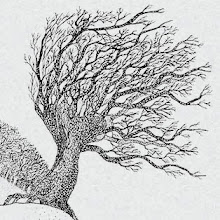«27. Monday. Travelled from Betanzos to Castillano. The roads still mountainous and rocky. We broke one of our axletrees, early in the day, which prevented us from going more than four leagues in the whole.
The house where we lodge is of stone, two stories high. We entered into the kitchen, — no floor but the ground, and no carpet but straw, trodden into mire by men, hogs, horses, mules, &c. In the middle of the kitchen was a mound, a little raised with earth and stone, upon which was a fire, with pots, kettles, skillets, &c. of the fashion of the country, about it. There was no chimney. The smoke ascended, and found no other passage than through two holes drilled through the tiles of the roof, not perpendicularly over the fire, but at angles of about forty-five degrees. On one side was a flue oven, very large, black, smoky, and sooty; on the opposite side of the fire was a cabin filled with straw, where I suppose the patron della casa, that is, the master of the house, his wife, and four children, all pigged in together. On the same floor with the kitchen was the stable; there was a door which parted the kitchen and stable, but this was always open, and the floor of the stable was covered with miry straw like the kitchen. I went into the stable, and saw it filled on both sides with mules belonging to us and several other travellers, who were obliged to put up by the rain.
The smoke filled every part of the kitchen, stable, and other parts of the house as thick as possible, so that it was very difficult to see or breathe. There was a flight of steps of stone, from the kitchen floor up into a chamber, covered with mud and straw; on the left hand, as you ascended the stairs, was a stage built up about half way from the kitchen floor to the chamber floor; on this stage was a bed of straw on which lay a fatting hog. Around the kitchen fire were arranged the man, woman, four children, all the travellers, servants, muleteers, &c. The chamber had a large quantity of Indian corn in ears, hanging over head upon sticks and pieces of slit work — perhaps an hundred bushels; in one corner was a large bin full of rape seed or colza; on the other side, another bin full of oats. In another part of the chamber lay a bushel or two of chestnuts, two frames for beds, straw beds upon them, a table in the middle. The floor had never been washed nor swept for an hundred years; smoke, soot, dirt everywhere; two windows in the chamber, that is, port-holes, without any glass; wooden doors to open and shut before the windows. Yet, amidst all these horrors, I slept better than I have done before since my arrival in Spain.»
The works of John Adams, second president of the United States.
Boston: Little & Brown, 1851, vol. III, pp. 241-242.






